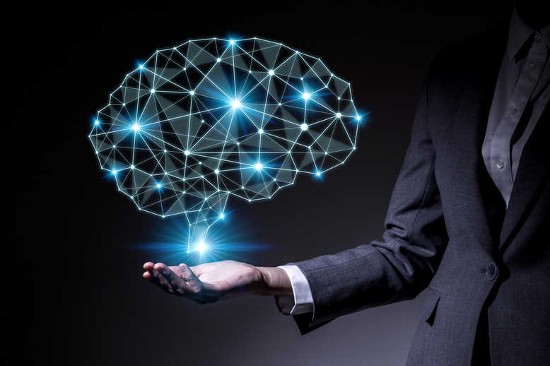Artificial intelligence (AI) notifications are constantly popping up in my email inbox. But the three I’m about to describe caught my eye recently and I wanted to share these advances with you.
The first involves the use of AI to identify areas within human organs that surgeons can safely dissect before operating on a patient. The second is the ability for AI to predict if memory issues in patients will develop into dementia within two years. And the third is the use of AI to analyze eye scans done during routine visits to an optician to identify patients at high risk for a heart attack.
An AI to Help Reduce Surgical Complications
In Toronto, Dr. Amin Madani, a general surgeon at the University Health Network, has developed a promising use for AI to improve surgical procedures and patient outcomes. Using deep learning, a subset of machine learning, Dr. Madani has trained an AI model by studying thousands of surgical procedure images involving dissection of livers, gallbladder, and other organs to identify safe and dangerous areas within organs’ anatomical structures to provide guidance during operations. The AI was able to score go and no-go zones for intervention with considerable accuracy.
In an article posted to CBC News in December of last year, a surgical instructor from Case Western Reserve in Cleveland, who collaborated with Dr. Madani is quoted stating, “The hope is to…bring a second pair of eyes into the operating room, in this case, machine eyes, to ensure the surgeon is seeing whey they think they’re seeing.”
How does this deep learning AI work? When a surgeon uses laparoscopic techniques to do gallbladder and other organ procedures. a camera gets inserted through the slit and projects images of the surgical field on a screen. What the AI does is project colours onto the images the surgeon sees. A green-coloured area of the surgical field is safe to cut. Coloured areas that are red are not.
The progress being made by Dr. Madani and his collaborators was first published in 2020 in the Annals of Surgery journal. The initial organ of choice has been the gallbladder since it is one of the most common operations and relatively easy to fully document with imaging from thousands of successful procedures. Based on the initial success the plans are to expand its use for other organs and a wider range of surgical interventions.
An AI That Predicts Who Will Get Alzheimer’s Disease
Machine learning (ML) is proving to be an effective AI tool in helping to identify false diagnoses of dementia from those who suffer from it in its most progressive form leading to an Alzheimer’s Disease diagnosis.
A study done at the University of Exeter in the United Kingdom shows that in looking at data from 15,307 individuals attending memory clinics, its AI tool with high accuracy predicted which of them would develop dementia within two years.
Clinical assessment tools exist for predicting dementia in patients over the longer term, but the challenge for clinicians working in this field is to assess patients who in the short term might be at high risk. Prior to the development of the ML tool, no clinical decision-making tool had previously been developed for identifying likely Alzheimer’s diagnoses within a window of one to two years.
How does this AI work? The ML tool studied the files of patients being followed between 2005 and 2015. All of the files the ML looked at were of patients who did not have dementia upon initial clinical examination. Many exhibited memory issues or had problems with other brain functions. But the ML tool was able to establish patterns within the patient record and identify the level of risk with much higher accuracy than human clinicians. It accurately diagnosed 92% of patients who developed Alzheimer’s within two years. It also accurately identified 80% of inconsistent diagnoses. In the study’s conclusions, it noted that the ML tool has the potential to reduce misdiagnoses by up to 84%.
The research lead who oversaw the study, Dr. David Llewellyn, at the University of Exeter, is quoted in an article appearing on the Biotechnology Community website, “We’re now able to teach computers to accurately predict who will go on to develop dementia within two years. We’re also excited to learn that our machine learning approach was able to identify patients who may have been misdiagnosed. This has the potential to reduce the guesswork in clinical practice and significantly improve the diagnostic pathway, helping families access the support they need as swiftly and as accurately as possible.”
An AI Used in Eye Examinations Can Predict Heart Attack Risk
A deep learning AI being developed at the University of Leeds in the United Kingdom has been trained to read retinal scans and identify patients who were likely to have a heart attack within a year. The study’s results appeared in the last week in the journal, Nature Machine Intelligence.
How does the AI tool work? Changes to blood vessels in the retina are indicators of vascular disease complications. This has been known by doctors for some time. But which patients go on to develop heart attacks within a short window of time remained an unknown. The deep learning AI analyzed retinal scans and cardiac scans from more than 5,000 patients. It was able to identify what changes it saw in the retina with changes in the heart. Once the patterning was learned the AI was able to estimate the pumping efficiency and size of the heart’s left ventricle which if enlarged is directly linked to increased risk of a heart disease. This information along with a review of the patients, age, and sex, led to a tool capable of accurately predicting 70 to 80% of the time if the patient was at short-term risk of a heart attack occurring within 12 months.
As a diagnostic tool, this allows doctors through routine and inexpensive eye screening examinations to intervene with early treatment to prevent cardiovascular disease leading to a major heart incident.
One of the researchers involved in the study, Professor Sven Plein at the university, is quoted in a press release stating, “The AI system is an excellent tool for unravelling the complex patterns that exist in nature, and that is what we have found – the intricate pattern of changes in the retina linked to changes in the heart.”
















